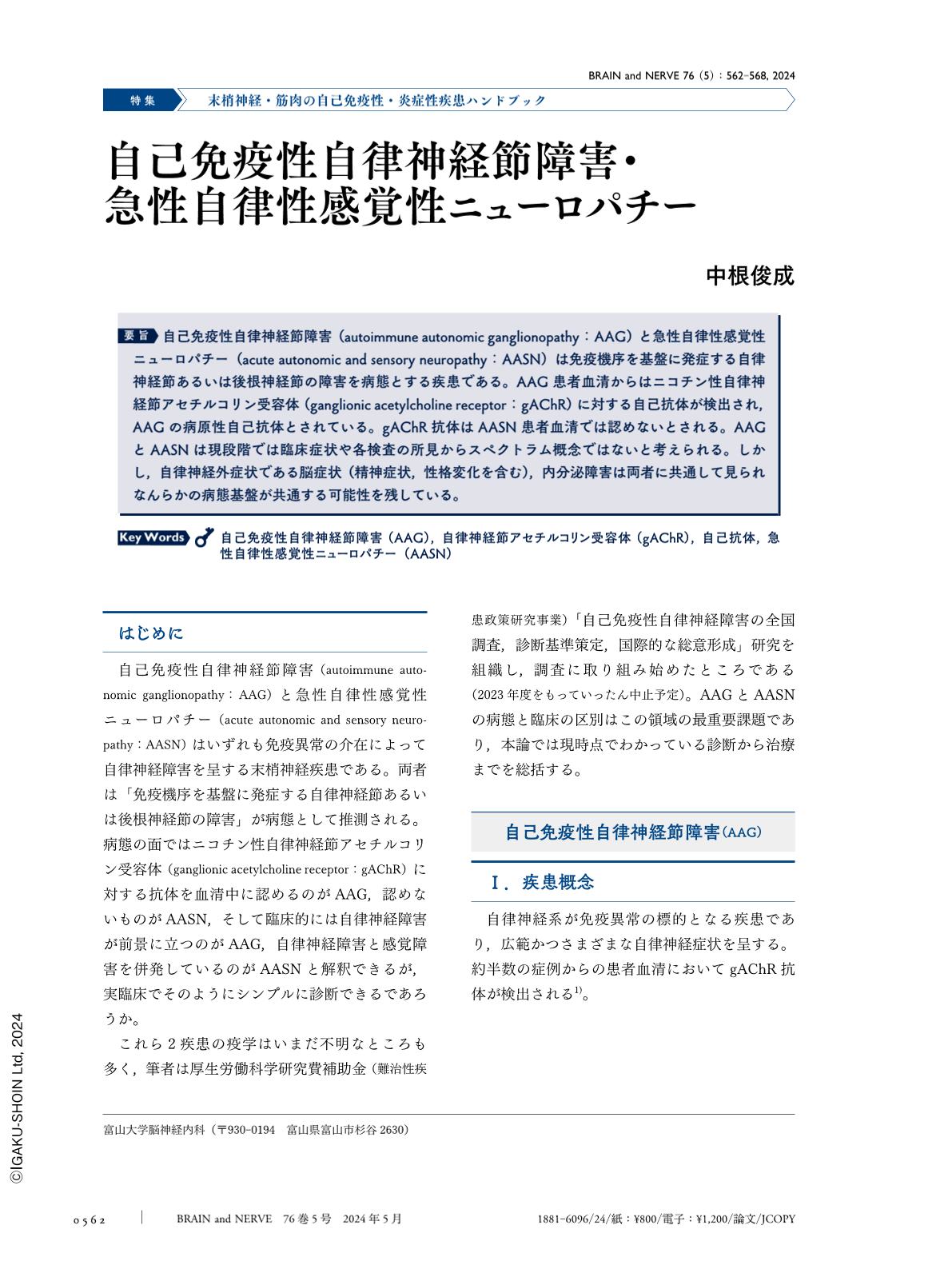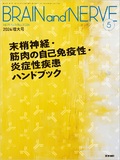Japanese
English
- 有料閲覧
- Abstract 文献概要
- 1ページ目 Look Inside
- 参考文献 Reference
自己免疫性自律神経節障害(autoimmune autonomic ganglionopathy:AAG)と急性自律性感覚性ニューロパチー(acute autonomic and sensory neuropathy:AASN)は免疫機序を基盤に発症する自律神経節あるいは後根神経節の障害を病態とする疾患である。AAG患者血清からはニコチン性自律神経節アセチルコリン受容体(ganglionic acetylcholine receptor:gAChR)に対する自己抗体が検出され,AAGの病原性自己抗体とされている。gAChR抗体はAASN患者血清では認めないとされる。AAGとAASNは現段階では臨床症状や各検査の所見からスペクトラム概念ではないと考えられる。しかし,自律神経外症状である脳症状(精神症状,性格変化を含む),内分泌障害は両者に共通して見られなんらかの病態基盤が共通する可能性を残している。
Abstract
Autoimmune autonomic ganglionopathy (AAG) and acute autonomic sensory neuropathy (AASN) are immune-mediated neuropathies that affect the autonomic and/or dorsal root ganglia. Autoantibodies against the nicotinic ganglionic acetylcholine receptor (gAChR) detected in the sera of patients with AAG play a key role in the pathogenesis of this condition. Notably, gAChR antibodies are not detected in the sera of patients with AASN. Currently, AAG and AASN are not considered to be on the same spectrum with regard to disease concept based on clinical symptoms and laboratory findings. However, extra-autonomic brain symptoms (including psychiatric symptoms and personality changes) and endocrine disorders occur in both diseases, which suggests shared pathophysiology between the two conditions.

Copyright © 2024, Igaku-Shoin Ltd. All rights reserved.


